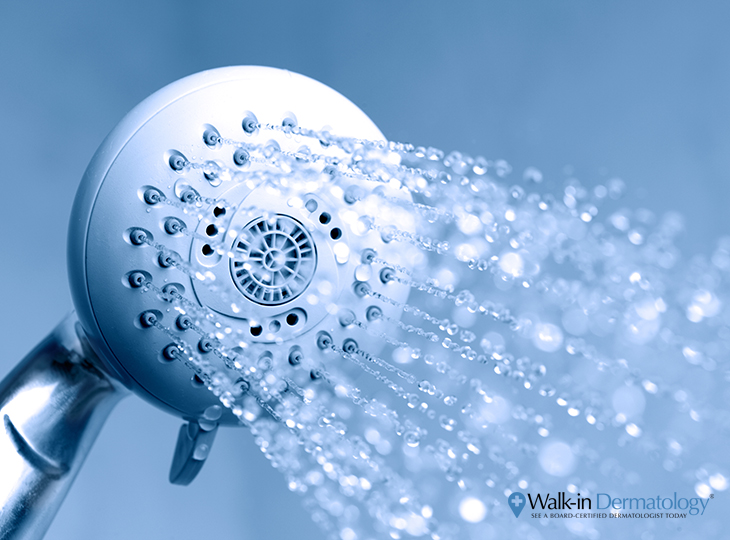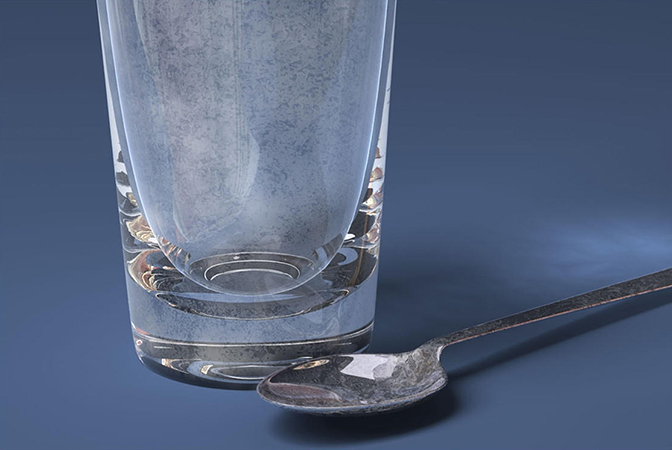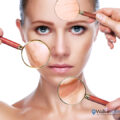Tues: 8:30am - 3:00pm
Wed: 12:00pm - 6:00pm
Thurs: 8:30am - 3:00pm
Fri: Closed
Sat: 8:30am - 12:30pm
Sun: Closed
Greenvale, NY 11548
Why Soft Water is Better for Your Skin


Itchy scalp. Skin irritation. Crusty scale on the shower walls and faucet. These are signs of hard water and prolonged exposure can be seriously hard on your skin.
Hard water is merely a term for water that contains dissolved minerals, typically calcium and magnesium, according to the US Geologic Survey. While calcium is good for your bones, it’s not benefitting your skin.
The minerals in hard water make lotions and moisturizers less effective. The result is dry skin. You may also experience these symptoms:
- Irritation and itchiness
- Acne or clogged pores
- Irritated scalp, dandruff or dry scalp
These unpleasant conditions occur when hard water dries and leaves a residue of calcium bicarbonate on your skin. This disrupts the body’s natural oils that keep your skin from drying out. When this residue clogs pores, the result is acne.
You may also notice your normally shiny hair is beginning to dull. A temporary solution for dull hair is to shampoo with apple cider vinegar or use a chelating shampoo designed to bond chemically with minerals and remove them. A word of caution: Chelating shampoos can strip hair color, so don’t use this type of product more than once a week.
Hard water has even been attributed to razor burn when shaving.


It’s not hard to spot signs of hard water. You may see hard water residue on dishes, especially clear drinking glasses. It looks like a scaly, white film that feels chalky to the touch. Inside the plumbing of your house, these mineral deposits can build up over time, causing damaged pipes and reducing the lifespan of major appliances such as hot water tanks, dishwashers and washing machines. Because it takes more energy to heat hard water, you’ll most likely see an increase in your utility bill over time.
If that’s not enough, hard water combines with soap to form a scum that’s difficult to wash off. That can cause itching when your skin dries no matter how clean you may feel right after bathing.
Soft water, by contrast, is virtually free of dissolved minerals. As a result, bath soaps and body washes will create more lather (so your soaps and washes last longer) and rinse off cleanly (so you feel refreshed, not itchy).
How to tell if you have hard water
While you can hire experts to test your water supply, there are simpler and less expensive ways to find out if you have hard water flowing through the taps.
One easy test is to clean and dry a clear, empty bottle with a screw-on cap. Fill the bottle about one-third full with tap water, add a few drops of pure liquid soap (no detergents) and cap the bottle. Then share vigorously for about 10 seconds. If you don’t see bubbles and the water appears cloudy or milky, your water is most likely hard.
Soft water will react with the liquid soap to form plenty of bubbles on top, while the water at the bottom of the bottle will remain clear. For this test to work, be sure you use a pure liquid soap that’s free of detergents, which are designed to lather in any type of water.
What to do if you have hard water
Plumbing companies sell and install whole-house water filtration systems that remove the minerals in your tap water. If your water supply comes from a well, an alternative is to connect to a public water utility, if available in your area, and receive a regular bill. Be aware that while the water itself is not expensive month-to-month, it can be costly for the public utility crew to connect your home with the main water line. Think: digging a trench across your yard for laying pipe and paying crews to install and connect the line to your plumbing.
A cheaper solution to keep hard water off your skin is to install a water softener on the shower head or faucet. This won’t resolve the problem of cloudy dishes or long-term plumbing issues, but it will help keep your skin from drying out due to hard water exposure. You can also buy an under-the-sink filtration system that connects out of sight. This will soften tap water for washing your face and hands.
Let Walk-in Dermatology Take Care of You and Your Skin
If you have concerns about dry skin or any other skin-related condition and want dependable answers fast, you don’t have to wonder, worry or wait. Walk-in Dermatology is here to keep you healthy. Our team of board-certified dermatologists and experienced medical staff will address your concerns and provide the necessary care for all your skin conditions. You can also schedule an appointment with us online.
If you can’t make it to one of our offices, we can set up a Video Visit and even prescribe medications remotely. Contact us today.








